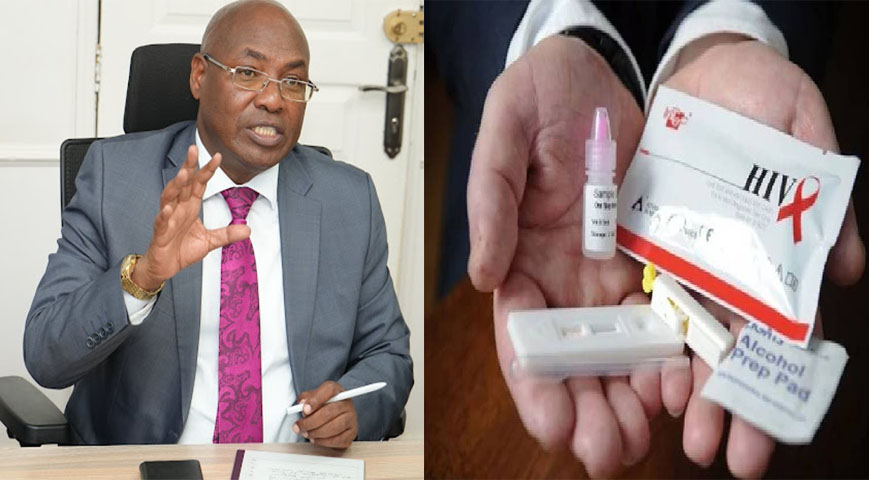The Ministry of Health (MoH) has dismissed reports that there are substandard HIV testing kits in circulation.
According to health PS Harry Kimtai, the claims are false, and the progress made in the HIV response would not be reversed.

He added that periodic quality assurance proficiency exams are crucial in monitoring and ensuring the quality of HIV testing in Kenya.
The business argues that it improperly reclassified its HIV testing kit to its disadvantage, costing it a chance to furnish a new set of testing materials that the country is implementing.

The firm also claims that the company that won the competition to supply the kits manufactured defective ones, which might lead to errors since "the kits are inefficient."
Director General of Health Dr Patrick Amoth contended that the corporation knew the kits had been classified as Assay 2 (A2).
A kit's specificity identifies HIV-negative status, whereas its sensitivity detects HIV-positive status. He said the Ministry agrees with the most recent World Health Organisation (WHO) guideline, which would see Kenya transition from a two-test methodology to a three-test algorithm.
This approach entails utilizing three separate test kits in a certain order to diagnose HIV accurately.
This is after allegations that a Chinese business, Guangzhou Wondfo Biotech Co Ltd, sued the Kenyan government for labeling their HIV testing kits as inferior.
A kit's specificity identifies HIV-negative status, whereas its sensitivity detects HIV-positive status. Depending on their specificity and sensitivity, testing kits are classified as A1, A2, or A3.









